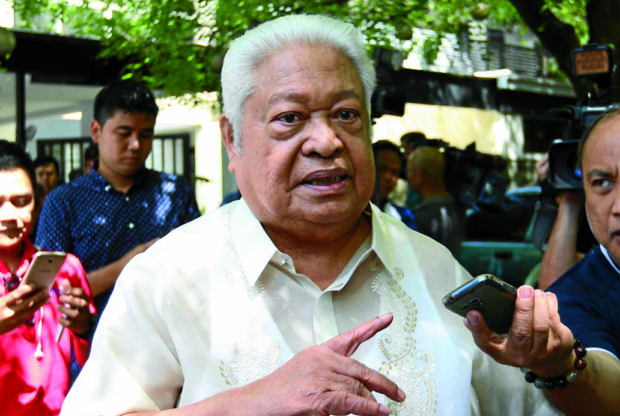Lagman: No traffic immunity for lawmakers’ drivers

Rep Edcel Lagman. INQUIRER FILE PHOTO/EDWIN BACASMAS
Lawmakers who commit traffic infractions may be immune from arrest when Congress is in session, but their personal drivers and bodyguards are not.
Albay Rep. Edcel Lagman issued the reminder to his colleagues on Tuesday after Majority Leader Rodolfo Fariñas invoked parliamentary immunity for lawmakers who violate minor traffic rules so they would not be late for session.
Lagman, an opposition leader, said Fariñas’ comment was “uncalled for” and sent the wrong message about House members being above the law.
Few lawmakers drive
He also noted that few members of the House drove their vehicles, anyway.
Article continues after this advertisement“Invariably representatives have drivers and any immunity does not extend to their drivers or to the security backup of some of them,” Lagman said in a statement.
Article continues after this advertisementOn Monday, Fariñas provoked anger on social media after he called on traffic enforcers to let off lawmakers who committed minor traffic violations when Congress was in session.
Fariñas cited Section 11, Article 6 of the 1987 Constitution, which gives lawmakers immunity from arrest for all offenses punishable by not more than six years imprisonment while the Congress is in session.
“The apparent off-the-cuff invocation of constitutional immunity from arrest for offenses punishable with imprisonment of not more than six years is uncalled for,” Lagman said.
“It sends the wrong message that there is no speed limit for representatives during session days,” he said.
Lagman added: “To my knowledge, no representative has been detained or arrested for a traffic violation and no incumbent has asked for any immunity from arrest or detention for a traffic infraction.”
Double standard
Bayan Muna Rep.Carlos Isagani Zarate said he also disagreed with Fariñas on the idea of immunity for lawmakers, as it “only creates double standards” in the implementation of laws.
“This only emphasizes that there are different laws for those in power and those for ordinary people. Lawmakers should set an example so these laws are heeded,” he said.
“Whether one is a simple employee or worker or a lawmaker and high official, everyone is affected by heavy traffic. Everyone has important everyday tasks requiring them to brave heavy traffic, which is why it is important not to favor anyone,” Zarate said.
Metropolitan Manila Development Authority (MMDA) Chair Danilo Lim gave assurance on Tuesday that the MMDA will be sensitive to public sentiment in studying Fariñas’ suggestion.
Lim said the proposed exemption would not only be thoroughly discussed but also undergo the proper process.
“We will ensure that this will not violate any law. We will carefully study this. We will be sensitive to the reaction of the public,” Lim said.
Last month, a party-list lawmaker filed a bill proposing that government officials, including lawmakers and Cabinet members, be forced to put themselves in commuters’ shoes.
Under the bill filed by Aangat Tayo Rep. Neil Abayon, public officials and civil servants in national and local government offices will be required to habitually ride public vehicles. —With a report from Jovic Yee